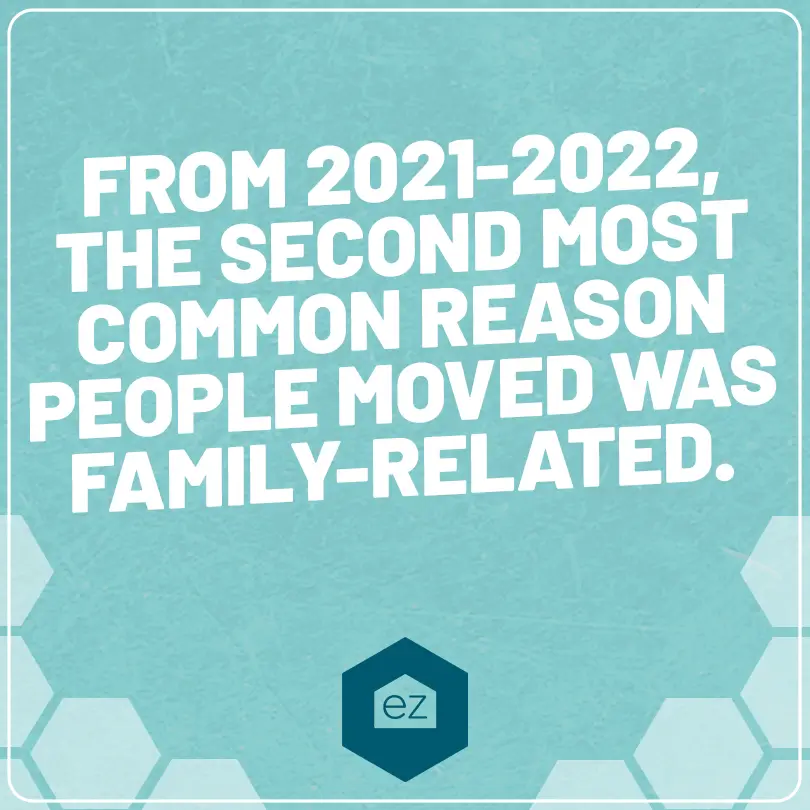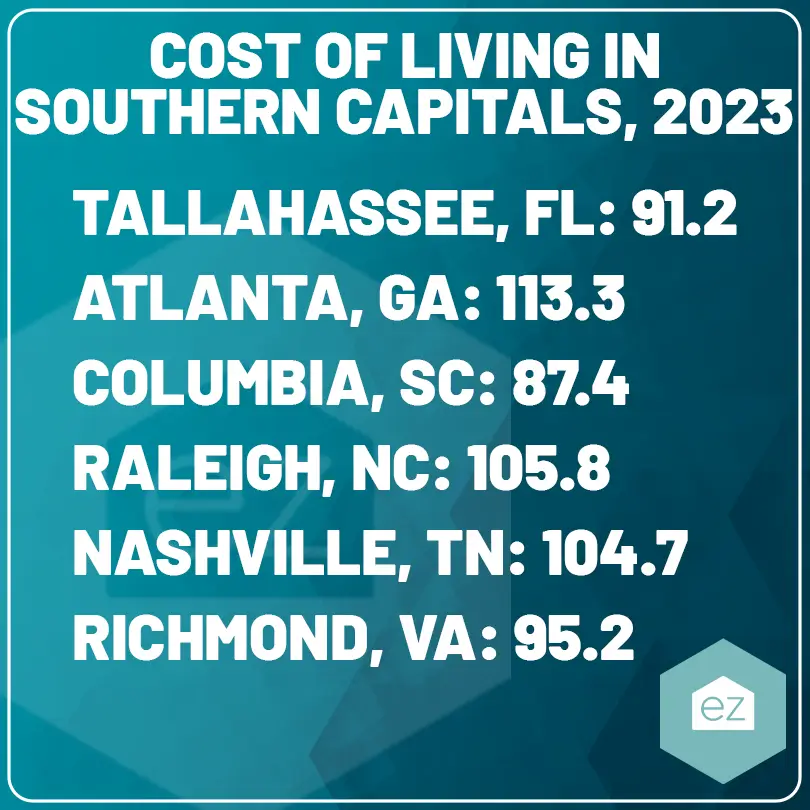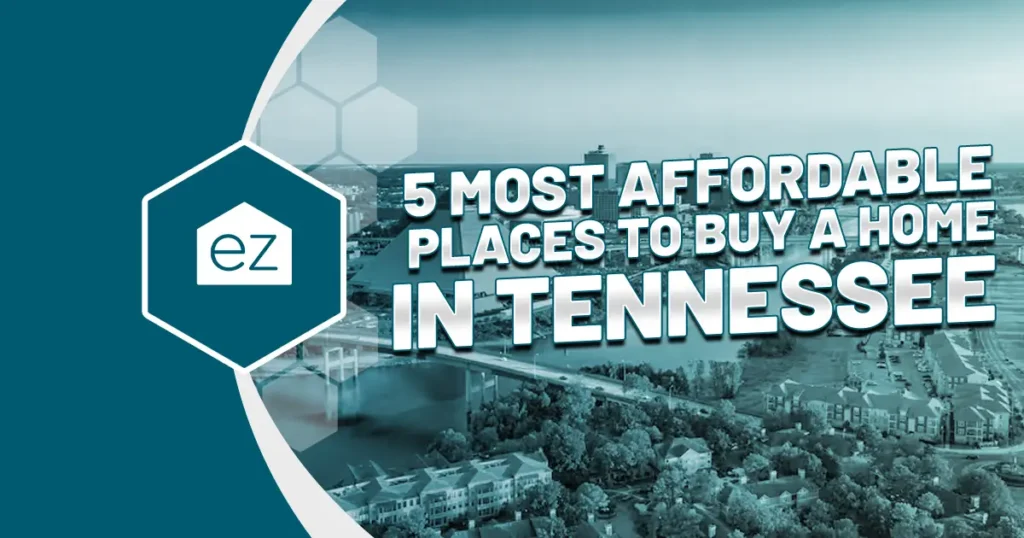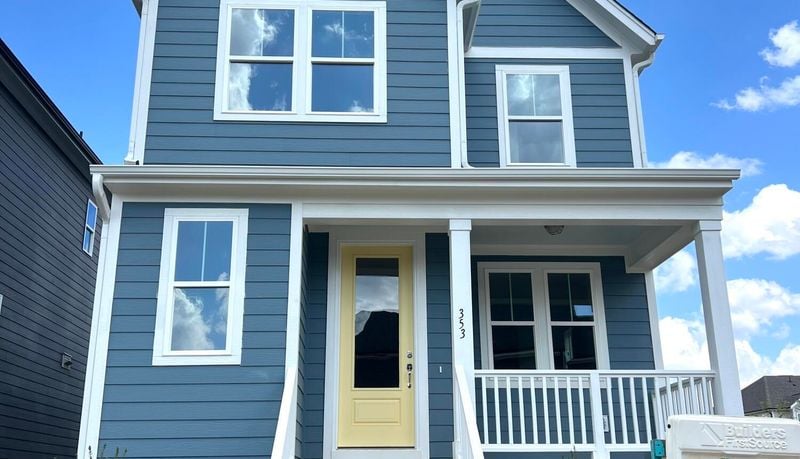Choosing a Place To Live in the Era of Remote Work
Thanks to remote work, more people have unprecedented flexibility in terms of where employees can live and work. Previously, office location usually dictated where someone lived. No longer bound by the geographical constraints of commuting daily to work, workers can choose where to live based on other lifestyle factors: access to favorite activities, being closer to family, or the cost of living.
A recent trend analysis by Upwork anticipates that by 2025, an estimated 22% of the American workforce, or 36.2 million people, will be working remotely. Already, 13% of full-time employees work from home full-time.
This new reality changes the home-buying process, particularly for younger generations. Millennials and Gen Z constituted 32% of homebuyers in 2022. Where they’re buying shows reevaluated priorities. Rather than seeking homes in bustling city centers near corporate hubs, they are exploring suburban or rural areas that offer more space, affordability, and quality of life. Gen Z was most active in buying homes in places like Virginia Beach, Cincinnati, and Detroit during 2023.
The freedom to choose where to live when working remotely opens a world of opportunities, but it’s not without challenges. Issues such as cost of living, access to amenities, internet connectivity, and time zone differences can all present unique hurdles.
Before you move for remote work, let’s dive into what can help you narrow your choices on where to live. Find a location perfectly tailored to your remote work lifestyle so you have the well-rounded life you dream of.
Consider Your Work Hours and Policies
Priority number one is your work schedule and company policies. So you can work from home–great! Are you expected to adhere to specific working hours, or is there flexibility?
A company spanning multiple time zones presents challenges comfortably accommodating meetings and deadlines. For example, life in Hawaii sounds like paradise, but if your company is based in New York, you’ll deal with a significant time difference. At 1 pm at headquarters, it’s 8 am in Honolulu. How do you feel about waking up at 4 am for team calls with colleagues on the East Coast?
In response to the digital nomad lifestyle, some companies now have specific policies regarding remote work locations. You may need to reside within the same country for tax and legal reasons. Not all companies allow you to live abroad and keep working for a US company.
What Do You Need To Work Successfully
Especially for a remote worker, access to high-speed, reliable internet is a requirement. Imagine trying to have a video call with a high-profile client only to lose connection multiple times. It’s frustrating for you and the client; you better believe that impacts the impression you make and your job performance.
What if you’re taking on a hybrid model, or your remote work requires travel? Living near a major airport may be better than living in a remote area. Traveling is fun, but buying a home an hour or more away quickly becomes inconvenient if work requires lengthy and complex travel plans.
While most of your work may take place at home, you may need a quiet, professional environment for video calls or in-person meetings. For that, consider access to co-working spaces.
Consider Proximity to Friends and Family

Living closer to family and friends is definitely a perk of remote work. In fact, during the height of the pandemic in 2021, 32% of people who moved cited being closer to family as a reason.
Nurturing relationships with loved ones significantly improves your–and their–quality of life. Extended family can help with raising kids, or you can be at hand to assist an aging family member. And being with friends simply makes life more fun.
Remember that moving someplace new will require building new connections and integrating into a new community. What is the social scene like in your prospective new location? Does it offer opportunities for interaction and community engagement?
Be Aware of State and Local Tax Laws
“When we moved from Florida to Kentucky, we were unprepared for how much more we’d pay in taxes,” said Alex McIntyre. “We knew Kentucky had a state income tax, but not a county and city income tax, and an annual tax on vehicles on top of registration fees.”
The point is that state and local tax burdens vary significantly from one location to another. Only seven states have no income tax–Tennessee and Florida, among them– potentially allowing you to keep more income even if your take-home pay is less. Conversely, states like California and New York have relatively high state income taxes.
Before moving across state lines, research how the local tax laws affect your take-home pay. Furthermore, some states like Delaware and New York have ‘convenience of the employer’ rules that impact your tax liability. You may be liable for state income taxes in two states, even if you’re working remotely.
Always consult with a tax professional or financial advisor to fully understand the tax implications of a potential move.
Be Aware of Other Unique State and Local Laws
In addition to tax laws, there’s a whole array of state and local regulations to consider when choosing where to live while working remotely. These laws cover labor, business, and property, to name a few.
Your labor protections as a remote employee depend on where you live. Yes, some protections are at the federal level, but some are at the state level–like a state-mandated minimum wage.
For instance, Oregon and the District of Columbia have labor laws prioritizing employee protections. Tennessee, Texas, and Florida boast flexible business regulations that could significantly impact your work, especially if you’re a freelancer or business owner.
Property laws come into play, too, affecting your rights as a tenant or homeowner. You may not consider property laws when working remotely, but they matter for your quality of life. These include rent control, eviction procedures, and homeowners’ association rules.
Learn About Access to Healthcare
Not everyone thinks about healthcare access until they need it, but for those with chronic medical conditions, it matters. The accessibility of healthcare services goes beyond proximity to hospitals. Include the availability of specialist medical practitioners, the quality of medical facilities, and the efficiency of local healthcare systems.
Quality pediatric care matters for families with children, while older individuals may want to ensure access to geriatric care. Remote workers also need to determine whether a company’s health insurance coverage extends to services in your new location.
Consider the Climate
Everyone has an opinion on the weather. Climate directly correlates to your quality of life. So if you hate the cold, it’s time to uproot southbound. San Diego, California’s Mediterranean-like climate offers mild, dry winters and warm summers perfect for beach days and outdoor fun.
Another warm-weather destination is Austin, Texas, but the trade-off for mild winters is sizzlingly hot summers. Some love Miami, Florida‘s tropical vibes and sea breezes, where the closest snow is on television.
Other remote workers prefer a four-season climate and winter sports, making living closer to Asheville or Northern Virginia a better temperature fit.
Check the Cost of Living
Cost of living measures essential expenses, including housing, utilities, groceries, transportation, healthcare, and taxes. Some cities have a high standard of living but also have a steep price tag. Others report a lower cost of living but may offer different access to amenities or quality of life.
Therefore, part of living and working remotely is balancing affordability and your desired lifestyle. Remember, the goal of remote work is not just to work from anywhere but to work from a place where you can live comfortably and enjoy a good quality of life.
Just check out the differences in cost of living between the capital cities of southern states:

Entertainment Options in Different Areas
The entertainment scene in different locations can be like night and day, literally! What you can do outside of work weighs into how much you’ll enjoy living there.
Take Fort Lauderdale, Florida, for example. Known as the “Venice of America,” Fort Lauderdale is a haven for those who love water sports like fishing, surfing, jet skiing, or simply sunbathing by the shore. The fun continues as the sun sets, as the city’s nightlife comes awake at numerous bars and clubs around Las Olas Boulevard. For art enthusiasts, the Riverwalk Arts and Entertainment District boasts many museums and galleries. For even more to do, the shopping venues include high-end boutiques and large retail complexes like the Galleria Mall. Clearly, this South Florida city’s wide entertainment options cater to various interests and lifestyles.
The point is, when scoping out a potential new location, definitely factor in your interests and hobbies. After all, you don’t want to be in a place that leaves you saying, “I’m bored; there’s nothing to do.”
Explore the Local Culture
Culture is what gives cities their unique draw–their personality if you will. It’s the difference between “I’m walking here!” and “Bless your heart.” It’s a mix of how people engage with each other, what they talk about, and the events that bring them together.
Don’t underestimate how local culture influences your day-to-day life and overall satisfaction in where you live. Local customs, traditions, language, and social etiquette are all parts of the cultural fabric of a place. Some people love the slower pace of life found in Savannah and Charleston. Miami’s Latin influences resonate in the language, music, and cuisine, as does the glitz and fringe in Nashville’s country music scene.
Research Safety and Crime
How safe you feel living in your home and community greatly matters to your quality of life and your peace of mind. Researching the crime rate, political stability, and natural disaster risks associated with your potential new home is important.
Reliable sources for this information include government websites, local news outlets, and independent safety rankings through law enforcement agencies. Safety includes natural disaster risks: wildlife, flooding, blizzards, tropical storms, and earthquakes. FEMA publishes flooding and wildfire risk maps.
Evaluate Transportation Options
Even if you get to work in sweats from a home office, you’ll still need to get out for daily errands and social events. So, how are you going to go about your day?
For some, the availability and reliability of public transportation is a priority. The big cities–San Francisco, New York, and Boston–are among the most walkable and easy to get around using city transportation networks. Raleigh has 4.4 bike trails per 100,000 residents, the most of any large US city.
The quality of infrastructure, the condition of roads, the availability of bike lanes, and the accessibility of public transit can greatly affect your daily life and mobility.
Understand Your Priorities
Understanding your priorities is key when deciding where to live while working remotely. We all have different factors that matter, so get real about what’s important to you. Do you crave a spirited social scene and lively nightlife? Or are you more of a tranquility, nature, and open spaces person? Maybe having family or friends nearby is a priority, or perhaps you’re all about that thriving remote work community.
And let’s not ignore your long-term goals. Are you planning to buy a home, start a family, or pursue further education? Your ambitions should definitely play a role in your location choice. Remember, remote work gives you the power to design a lifestyle that suits your needs and aspirations. Weigh all these factors to find a location that ticks all the boxes for your remote work and dream life!
Start Your Home Search
Preston Guyton
Share this Post
Related Articles
Buying a Home
Conforming Loan Limits: A Guide for Homebuyers
Buying a Home
What to Know About Termites In Your Home
Buying a Home
What to Know About Spray Foam Insulation
Buying a Home





